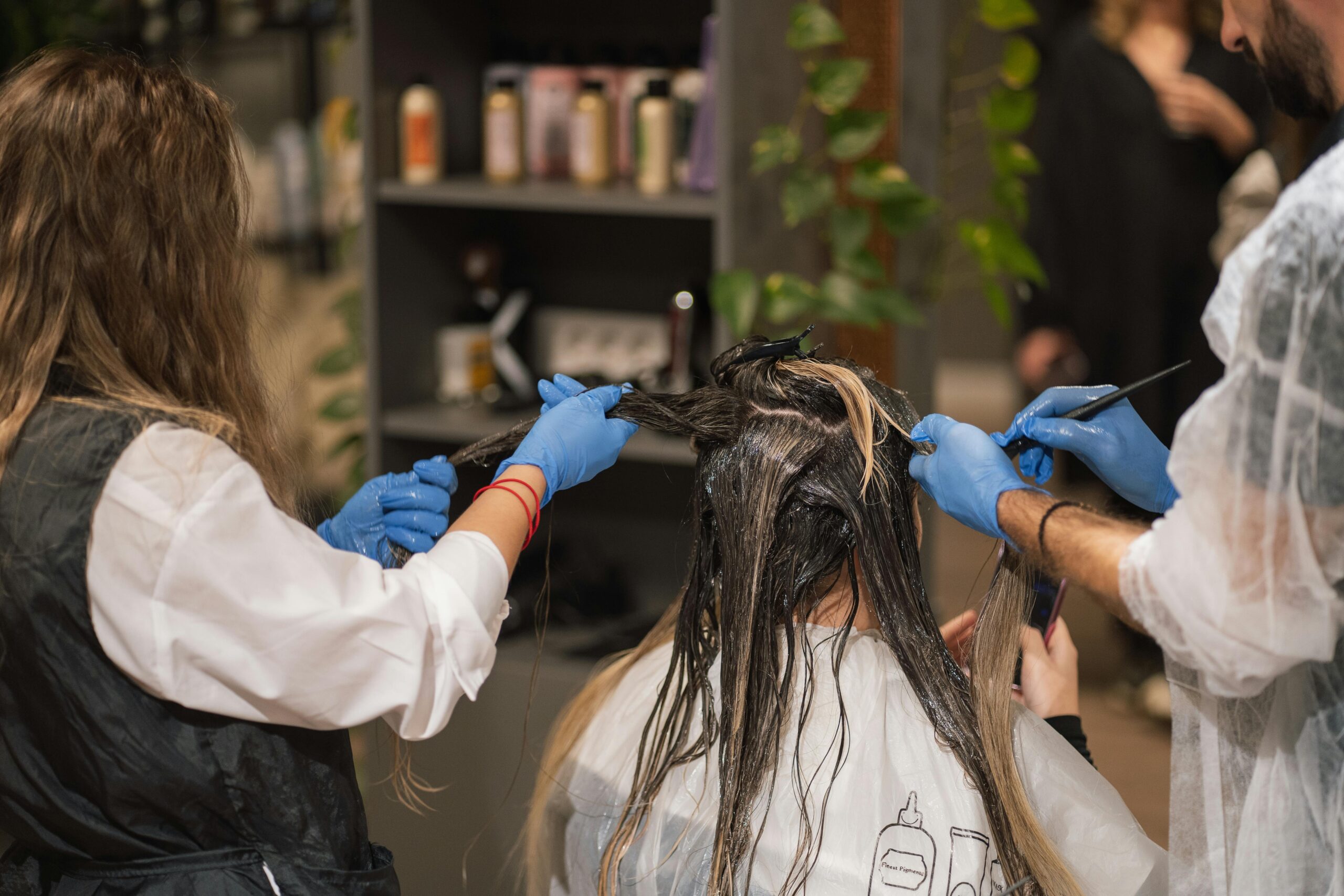Ayurveda, an ancient Indian system of medicine, has long emphasized the use of natural ingredients for hair care. Ayurvedic hair masks combine herbal powders, oils, and other natural components to deeply nourish the scalp and strengthen hair. These masks offer a holistic solution to common hair concerns, promoting healthier, shinier, and more resilient hair without harsh chemicals.
What Are Ayurvedic Hair Masks?
Ayurvedic hair masks are made from natural, plant-based ingredients like amla, neem, bhringraj, hibiscus, and fenugreek. These ingredients are known for their therapeutic properties and work together to address hair and scalp issues.
These masks are typically mixed with a liquid base, such as water, aloe vera, or yogurt, to create a paste. They are then applied to the scalp and hair, where they work to restore balance and improve hair health.
Key Benefits of Ayurvedic Hair Masks
Deeply Nourishes the Scalp
The scalp is the foundation of healthy hair. Ayurvedic hair masks are rich in nutrients that penetrate deep into the scalp, providing essential vitamins and minerals. Ingredients like bhringraj and neem improve blood circulation, ensuring that hair follicles receive the nourishment they need to thrive.
Reduces Hair Fall
Hair fall can result from weak roots, poor scalp health, or stress. Ayurvedic ingredients like amla and fenugreek strengthen the hair shaft and improve root health. Regular use of Ayurvedic hair masks can significantly reduce hair shedding and support thicker, fuller growth.
Balances Scalp Health
A healthy scalp is crucial for maintaining strong hair. Ayurvedic hair masks help regulate oil production, reducing issues like dandruff and dryness. Neem, with its antibacterial properties, soothes irritation and prevents scalp infections.
Enhances Hair Texture
Ayurvedic masks improve the texture of hair, making it softer, smoother, and more manageable. Ingredients like hibiscus and aloe vera provide natural hydration, reducing frizz and leaving hair silky to the touch.
Promotes Hair Growth
Stimulating hair growth is one of the key benefits of Ayurvedic treatments. Bhringraj, often referred to as the “king of herbs,” promotes hair growth by increasing blood flow to the scalp and rejuvenating hair follicles. This results in stronger, longer strands over time.
Prevents Premature Graying
Premature graying is often caused by oxidative stress and nutrient deficiencies. Ingredients like amla, rich in antioxidants and vitamin C, combat these factors, helping maintain the natural color of your hair.
Common Ingredients in Ayurvedic Hair Masks and Their Benefits
Amla
Amla, or Indian gooseberry, is a powerful antioxidant. It strengthens hair, reduces dandruff, and prevents premature graying.
Bhringraj
Known for its hair growth benefits, bhringraj revitalizes hair follicles, reduces hair fall, and promotes shiny, healthy hair.
Neem
Neem has antibacterial properties that cleanse the scalp, reduce dandruff, and soothe irritation.
Fenugreek
Fenugreek seeds are rich in proteins and nicotinic acid, making them excellent for reducing hair fall and boosting hair density.
Hibiscus
Hibiscus flowers and leaves deeply condition the hair, enhance shine, and improve texture.
Aloe Vera
Aloe vera hydrates the scalp, reduces dandruff, and promotes a healthy, balanced scalp environment.
How to Use Ayurvedic Hair Masks
1. Choose the Right Ingredients
Select ingredients based on your hair concerns. For example, use neem for dandruff or bhringraj for hair growth.
2. Prepare the Mask
Mix powdered herbs or fresh ingredients with a base like water, yogurt, or aloe vera. Adjust the consistency to create a smooth paste.
3. Apply Evenly
Part your hair into sections and apply the mask from the roots to the tips. Focus on the scalp for maximum benefits.
4. Leave it On
Allow the mask to sit for 20-30 minutes. Cover your hair with a shower cap to prevent drying.
5. Rinse Thoroughly
Wash off the mask with lukewarm water and a mild shampoo. Avoid using hot water, as it can strip away natural oils.
Are Ayurvedic Hair Masks Suitable for Everyone?
Ayurvedic hair masks are generally safe for all hair types. However, it’s important to conduct a patch test before using new ingredients to check for allergies. If you have sensitive skin or an existing scalp condition, consult a dermatologist before trying Ayurvedic treatments.
Conclusion
Ayurvedic hair masks are a natural, effective way to enhance hair health. From reducing hair fall to improving texture and promoting growth, these masks offer a holistic approach to hair care. By incorporating Ayurvedic hair masks into your routine, you can achieve stronger, healthier hair naturally.
Frequently Asked Questions (FAQs)
1. How often should I use Ayurvedic hair masks?
You can use Ayurvedic hair masks once or twice a week for the best results. Overuse may lead to product buildup or irritation.
2. Can Ayurvedic hair masks replace conditioner?
While Ayurvedic masks deeply condition the hair, they should complement, not replace, your regular conditioner for optimal hydration.
3. Are Ayurvedic hair masks effective for colored hair?
Yes, Ayurvedic hair masks are safe for colored hair. They help nourish and repair damage caused by chemical treatments.
4. How long does it take to see results from Ayurvedic hair masks?
Consistency is key. Visible improvements usually appear after 4-6 weeks of regular use.
5. Can I make Ayurvedic hair masks at home?
Absolutely! Homemade Ayurvedic masks are simple to prepare using ingredients like amla powder, fenugreek seeds, and aloe vera. Customize them based on your hair needs.



